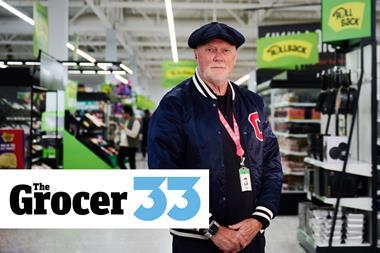Given the prominent role played by Tesco and other supermarkets in persuading the government to back mandatory health reporting for the food industry, developments this week may appear to be a major u-turn in the war on obesity.
It was only in May this year that The Grocer revealed Tesco boss Ken Murphy had written an open letter to health secretary Wes Streeting, backed by the retailer’s health charity partners Cancer Research UK, British Heart Foundation and Diabetes UK (and eventually by most major supermarkets).
“To truly support public health, we need consistent, transparent reporting across the industry,” he said.
Yet today The Grocer revealed the BRC was urging ministers not to bring in mandatory reporting or Streeting’s subsequently promised health targets for the major supermarkets ahead of the out-of-home sector – in fact, actually delay them until at least the next parliament.
That is despite Tesco, Morrisons, Sainsbury’s and Asda already reporting annually on the heath of their products, and despite advice this week from influential policy experts that a two-tier approach, starting with the big supermarkets, is the way forward.
A two-tier system
Yesterday The Grocer revealed nudge body Nesta was urging ministers to push ahead with mandatory reporting and targets, beginning with the top 11 supermarkets and introducing a phased approach to allow the OOH sector to catch up.
However, the BRC claims it is unfair and unworkable to have a healthy eating standard which just covers the major supermarkets, while the likes of Greggs, Starbucks and Costa remain off the hook (for now at least).
It’s not just the tried and trusted “level playing field” argument that’s been rolled out by the consortium either – although that has become something of a stuck record over the years.
The BRC also accuses Nesta, the nudge body that has been so instrumental in helping Streeting draw up his plans, of being “naive” over the huge cost and time involved, even for the major retailers, in producing the data that will be needed for this “world first” system.
It claims it will take years before the necessary data systems are in place and that it will cost retailers “tens of millions” in the process.
Timing is everything
Nesta is clearly worried that the momentum generated in the summer when Streeting announced his 10-Year Health Plan for the NHS, and expectations were running high among health campaigners over what the government’s new food strategy would bring, has been lost.
But Nesta’s vocal opponents, led by the BRC, argue the government should focus on the looming budget and the wider economic backdrop. They point to collapsing business confidence in an industry already reeling from regulatory costs and taxation, while wondering what fresh shocks might emerge from Rachel Reeves’ red box in a couple of weeks.
And with a review of the 2004 Nutrient Profiling Model (NPM) also in the works, it’s hardly surprising retailers are in no hurry to sign up to new mandatory targets.
The future of the NPM has long been the elephant in the room, but now it threatens to burst into the open. Public Health England, before its closure, began a review of the NPM in 2018, although fierce opposition from the food industry pushed the process into years of limbo. Now, the review has been revived as part of Streeting’s 10-year plan.
While academics and many in the industry agree the system, which dates back to 2004, is long overdue for an overhaul, there are fears new recommendations on free sugars intake will lead to tens of thousands of products being reclassified as HFSS, with huge economic consequences.
Those are the very products Nesta wants supermarkets to report on and remove (or face hefty GSCOP-style fines) under its new era of transparency with teeth.
No wonder some supermarkets see this as anything but “commercially viable”.




















No comments yet